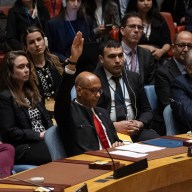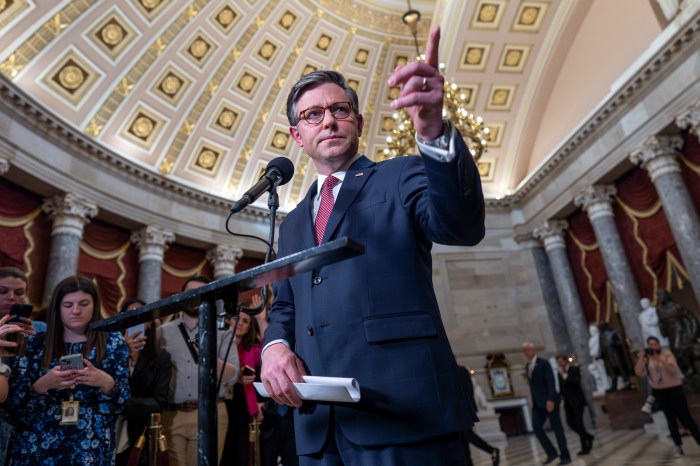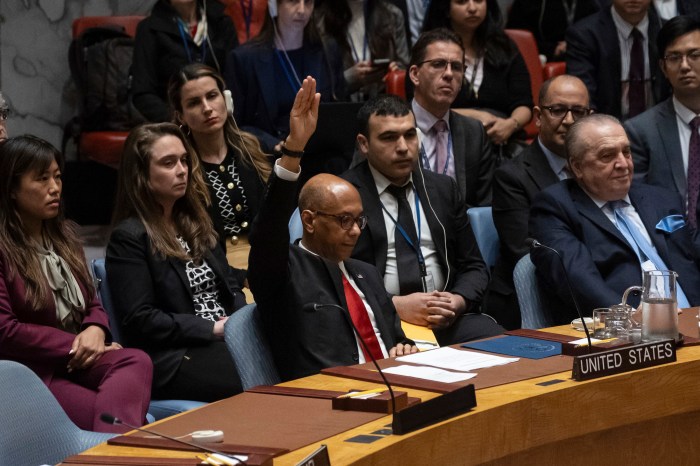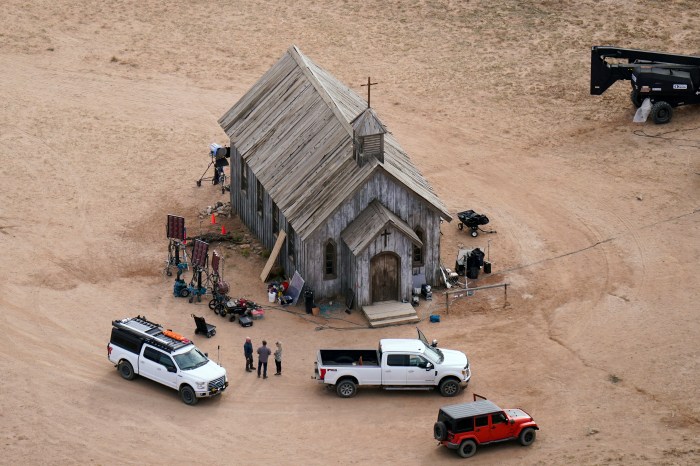NEW YORK – After years on the defensive during the Bush administration, the National Organization for Women is elated to have a president sharing many of its goals. Yet NOW heads into its own leadership contest – a sharp contrast of age and race – mindful of the need to energize its ranks.
Kim Gandy, a savvy former prosecutor, is stepping down as NOW president after eight years leading the battle against many Bush-era policies.
The election to succeed her, set for NOW’s three-day national conference starting Friday in Indianapolis, is both an unusual clash of generations and an opportunity for activists to confront some of the challenges facing the feminist movement.
Delegates will be choosing between Latifa Lyles, a 33-year-old African-American who has been one of Gandy’s three vice presidents, and Terry O’Neill, 56, a white activist who taught law at Tulane University, who was NOW’s vice-president for membership from 2001-05, and who most recently has been chief of staff for a county council member in Maryland’s Montgomery County.
The two have waged a polite campaign but are aware of the contrasts. Lyles would be NOW’s youngest president ever; O’Neill one of the oldest at the start of a term.
Gandy speaks respectfully of O’Neill, but she has enthusiastically endorsed Lyles.
“It’s hard to ignore the fact there’s been a generational shift in the country, and an organization that doesn’t recognize that is living in the past,” Gandy said. “Latifa’s youth is not a detriment, but an advantage. … She’ll take NOW to a different level.”
Yet one of NOW’s three current vice-presidents – Olga Vives – is backing O’Neill, as are former NOW president Patricia Ireland and many other NOW regional leaders.
Both contenders expect the election to be close, and both are promoting themselves as best able to bolster NOW’s membership.
“We are not the strongest grass-roots movement we can be – we both agree on that,” Lyles said. “The question is how we deal with that.”
Noting that she contrasts with NOW’s mostly white and over-40 membership, Lyles said she could help give NOW a new image of youth and diversity that would appeal to younger feminists and reinvigorate the broader movement.
“The profile of NOW is just as important as the work we do,” she said. “There are a lot of antiquated notions about what feminism is.”
O’Neill, in turn, says she has the edge over Lyles in regard to grass-roots organizing and membership recruitment.
“I keep hearing ‘Terry, I want to see more activism in my community,”‘ O’Neill said. “The press releases, the media exposure, invitations to the White House – these are excellent things, but they’re not enough. The grass roots are not personally engaged.”
Like many feminists, O’Neill said she is still celebrating Barack Obama’s election as president – and his appointments of numerous veterans of the women’s movement to key posts in his administration.
“But even with a friend in the White House and a lot of friends in the Congress, it’s going to take well-organized, grass-roots movement to advance our agenda,” O’Neill said.
That agenda – more or less common to both tickets – includes ensuring that women’s needs are taken into account in health care reform and economic recovery initiatives. Feminists also bristle at continuing opposition to steps that would make birth control and abortion more accessible.
Ireland, NOW’s president from 1991 to 2001, says she is backing O’Neill – and serving as campaign treasurer – based largely on an assessment of the candidates’ tactical skills.
“There is a role that requires us to take unpopular stands and push on our friends,” Ireland said. “That’s what I think Terry really gets. She’s the one I believe will be very willing to use a wide array of tactics – not just traditional letters and emails, but also engage in civil disobedience, organize fasts, be at some congressman’s district office.”
However, Jessica Valenti, a prominent younger feminist who has been following the NOW campaign, says her contemporaries would be far more excited if Lyles triumphs over O’Neill.
“I never paid attention to a NOW election in my life until I knew Latifa was running,” said Valenti, 30, founder and executive editor of the popular blog Feministing.com.
“This could be the moment where NOW becomes super-relevant to the feminist movement again,” Valenti said. “NOW has done amazing work over the years. But younger feminists, online feminists – we haven’t had a lot of connections with them.”
“When you think of NOW, you think of white middle-class feminism – 70s feminism,” Valenti added. “A lot of younger women are tired of seeing the same kind of leadership over and over. …They’re getting excited about smaller, local feminist organizations, more youth-led, doing more cutting-edge work.”
Overall, NOW says it has more than 500,000 “contributing members” – who are either paying membership dues at present or did so recently enough to stay on the mailing list. Gandy said there’s been a recent dip in membership revenues, but it’s modest enough so far that NOW has been able to avoid the staff layoffs occurring at many other non-profits.
Gandy, 55, chuckled during a telephone interview when it was noted that both candidates to succeed her are promising to improve NOW’s grass-roots outreach.
“Every candidate is going to say that,” she said, recalling similar promises of her own. “The reality is that people who vote are from the grass roots, and every candidate is going to say ‘You’re going to get more attention from us.”‘
Gandy was an early and passionate supporter of Hillary Clinton during the Democratic primary campaign, but shifted firmly into the Obama camp when he won the nomination and remains a fan.
“There’s no question that most progressives are giving President Obama some space to do the things he promised to do,” Gandy said. “That doesn’t mean that NOW’s pressure on the Congress or state legislatures is unnecessary. …You have to keep raising the issues, keep them in front of people.”


















